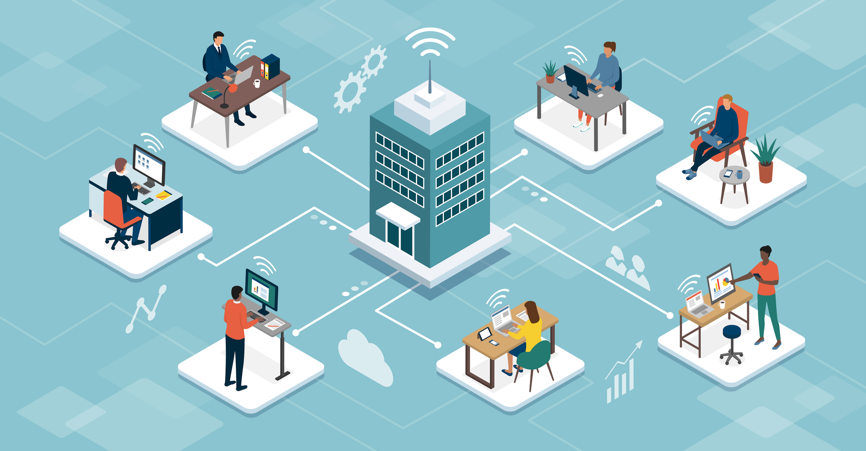Author: Kevin Harry – Managing Partner

Except for a few specific job roles and industries, working remotely is here to stay, so how do you continue to build a cohesive work team and bring clarity to remote teams? It all begins with looking at what hasn’t changed for employees: the need for meaningful work.
Employees want to be valued and to belong to something greater than themselves irrespective of whether a team is local or remote. This means that the core skills and competencies a leader needs to have are the same regardless of type of team, so the way a leader creates a sense of belonging and truly engages teams has to do with delivery methods. Technology plays a big role, of course, and knowing what tools are appropriate for properly engaging your remote teams is a part of the puzzle, but the other part is on how you deliver the major competencies for the modern employee. Here are the three major areas to focus attention on:
Employees want to be valued and to belong to something greater than themselves irrespective of whether a team is local or remote. This means that the core skills and competencies a leader needs to have are the same regardless of type of team, so the way a leader creates a sense of belonging and truly engages teams has to do with delivery methods. Technology plays a big role, of course, and knowing what tools are appropriate for properly engaging your remote teams is a part of the puzzle, but the other part is on how you deliver the major competencies for the modern employee. Here are the three major areas to focus attention on:
Recognize and Reward Specific Behaviours in Remote Teams

Recognition plays a far bigger part in an employee’s sense of belonging than is often understood. For both teams and individuals, having their work be known and celebrated within an organization has the largest impact on a sense of belonging and contributing, although traditional rewards are always prized as well. The important thing is to be personal in both rewards and recognition, so that the team or individual understands exactly what efforts they contributed, or results they achieved, means for the company as a whole.
Rethink Career Pathing and Development
Although there are some differences between the existing and incoming generations in the workforce, a common theme is having a sense of agency or control over their career development. For leaders working remotely, this means rethinking the traditional promotion arc through the org chart, and instead partnering with employees to get their input on whether they prefer lateral moves (a common theme in newer generations is to expand their skill base, this is a great way to do that), or how they prefer improving their skills, which may be self-teaching, traditional classroom, or experiential – to learn by actually doing tasks within a job.
Although there are some differences between the existing and incoming generations in the workforce, a common theme is having a sense of agency or control over their career development. For leaders working remotely, this means rethinking the traditional promotion arc through the org chart, and instead partnering with employees to get their input on whether they prefer lateral moves (a common theme in newer generations is to expand their skill base, this is a great way to do that), or how they prefer improving their skills, which may be self-teaching, traditional classroom, or experiential – to learn by actually doing tasks within a job.
Focus on Developing Skills Needed for Engaging Remote Teams
For senior or executive leaders, fostering the types of behaviours needed for successfully engaging remote teams is imperative. Coaching and mentoring, specific and timely feedback, and personalized career pathing are all key competencies that are necessary for all types of teams and individuals, but need to be tailored for either remote or in-office workers. Making sure that your leadership development curricula involve these competencies is necessary for the existing and incoming pipeline of leadership talent.
For senior or executive leaders, fostering the types of behaviours needed for successfully engaging remote teams is imperative. Coaching and mentoring, specific and timely feedback, and personalized career pathing are all key competencies that are necessary for all types of teams and individuals, but need to be tailored for either remote or in-office workers. Making sure that your leadership development curricula involve these competencies is necessary for the existing and incoming pipeline of leadership talent.

If you would like to learn more, contact us using the link below. Make sure to follow us on LinkedIn and Facebook to continue receiving impactful insights for you and your business.

Kevin Harry is the founding and Managing Partner of the BCJ Group, bringing his career of over 30+ years with the Disney Company.
